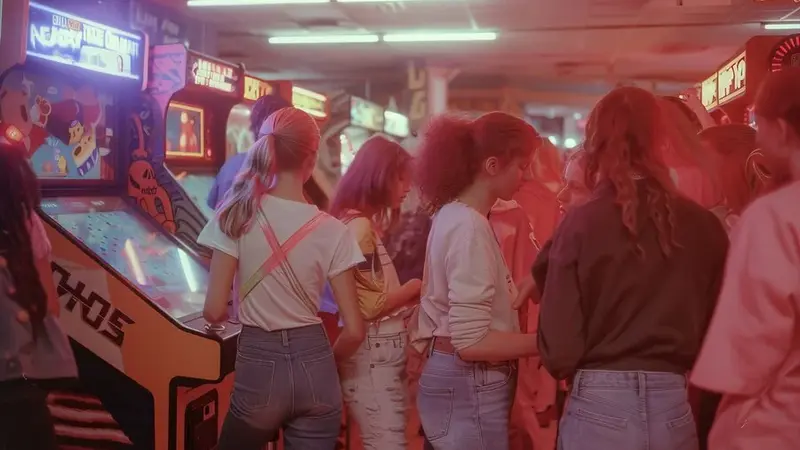The 1970s marked a pivotal decade in the evolution of social spaces, with nightclubs emerging as epicenters of cultural and musical innovation. This era, often synonymous with the disco movement, saw nightclubs transcend their traditional role as mere entertainment venues, becoming crucibles where music, fashion, and societal norms were both challenged and celebrated.
The Birth of Discotheques
The early 1970s witnessed the rise of discotheques, a new kind of nightclub that was dedicated primarily to dancing rather than the live performances typical of earlier decades. Clubs like Studio 54 in New York and The Warehouse in Chicago became legendary, not just for their music but for fostering an environment of inclusivity and freedom. These venues were safe havens where people from diverse backgrounds—whether in terms of race, sexual orientation, or social class—could come together on the dance floor.
Music as the Heartbeat of Nightlife
Disco music, characterized by its steady four-on-the-floor beat, synthesized basslines, and lush orchestral arrangements, was more than just background noise; it was the heartbeat of these nightclubs. Icons like Donna Summer and the Bee Gees dominated the scene, with tracks that were engineered specifically for the acoustics of nightclubs. The music was designed to be relentless and uplifting, encouraging a form of escapism that was very much needed during the economically and politically turbulent times of the 1970s.
Fashion and Flamboyance
Fashion was a critical element of nightclub culture, with attendees often donning extravagant outfits that shimmered under the disco balls. This flamboyance was not only a form of personal expression but also a rebellion against the conservative dress codes of previous generations. Platform shoes, metallic fabrics, and Halston dresses became symbols of this vibrant scene, each element reflecting the exuberant energy that defined the disco era.
Societal Impact
Nightclubs in the 1970s were more than just places to dance; they were arenas where the rigid social norms of the time were put to the test. The sexual revolution, the push for gay rights, and the overall spirit of liberation that permeated the decade were all palpable within the walls of these establishments. They provided a platform for individuals to express themselves freely and without judgment, a stark contrast to the more oppressive societal structures outside. Contact us for more details.
The Legacy of 1970s Nightclub Culture
The influence of 1970s nightclub culture extends far beyond the decade itself. It paved the way for the electronic dance music scenes of the 1980s and beyond, setting the stage for modern nightclubs and music festivals around the world. Moreover, the social changes that took root in these nightclubs had lasting impacts, contributing to more open discussions about gender and sexuality in society.
The 1970s nightclub scene was a remarkable blend of sound, style, and social change. It was a period where the night was not just for sleep; it was an avenue for transformation and celebration. This era left an indelible mark on the cultural landscape, reminding us that sometimes, the most profound societal changes begin on the dance floor.
